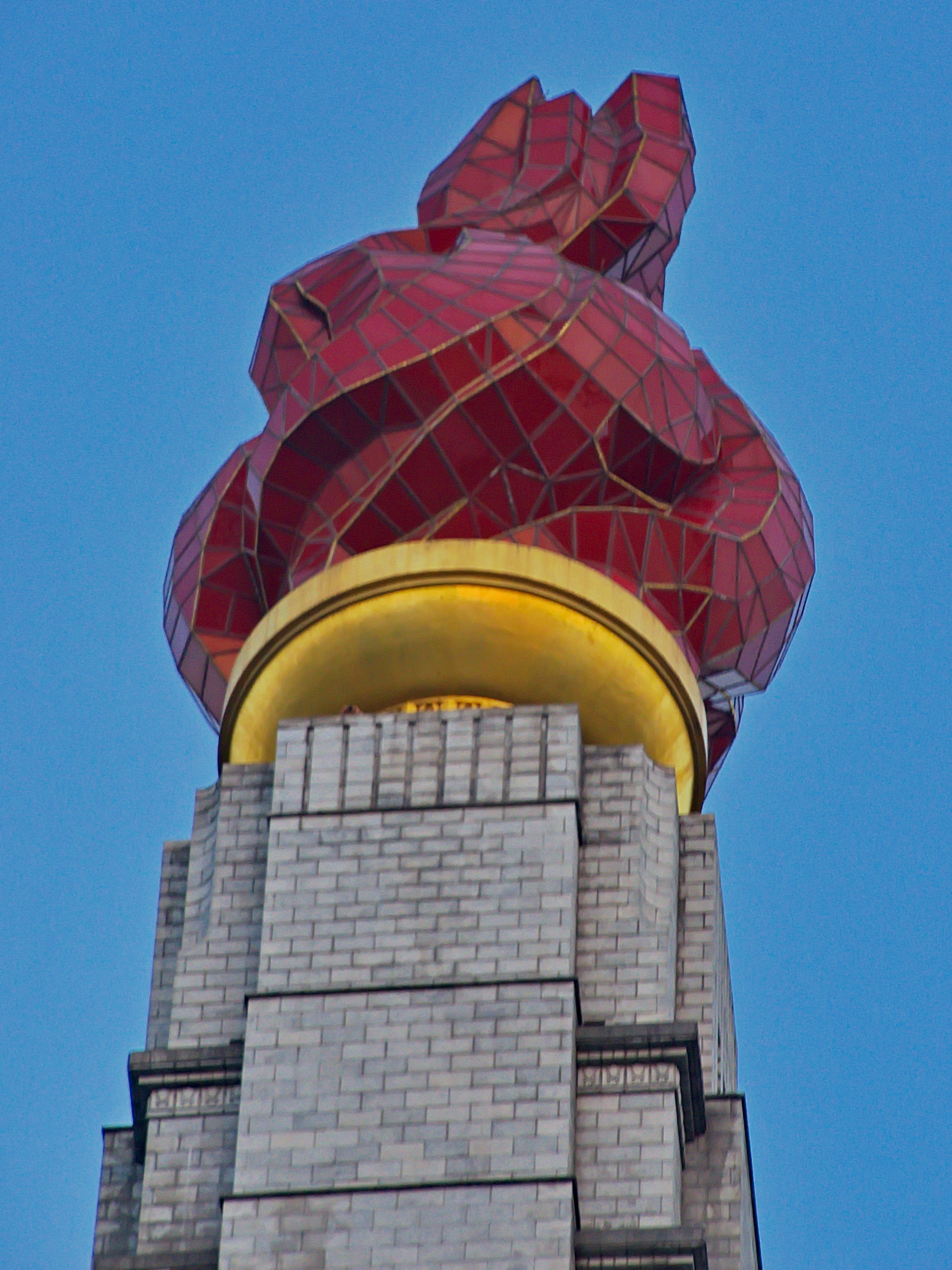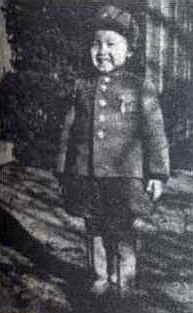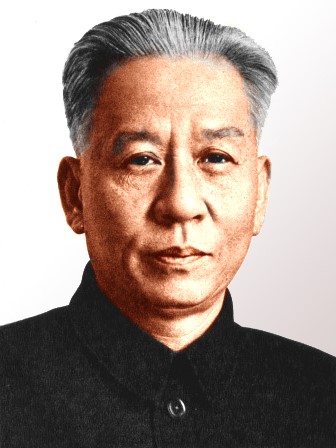|
Kimilsungism–Kimjongilism
Officially, the Workers' Party of Korea (WPK)the ruling party of North Korea (Democratic People's Republic of Korea)is a communist party guided by Kimilsungism–Kimjongilism, a synthesis of the ideas of Kim Il Sung and Kim Jong Il. The party is committed to ''Juche'', an ideology attributed to Kim Il Sung which promotes national independence and development through the efforts of the masses. Although ''Juche'' was originally presented as the Korean interpretation of Marxism–Leninism, the party now presents it as a freestanding philosophy of Kim Il Sung. The WPK recognizes the ruling Kim family as the ultimate source of its political thought. The fourth party conference, held in 2012, amended the party rules to state that Kimilsungism–Kimjongilism was "the only guiding idea of the party". Under Kim Jong Il, who governed as chairman of the National Defence Commission, communism was steadily removed from party and state documents in favour of , or military-first politics. ... [...More Info...] [...Related Items...] OR: [Wikipedia] [Google] [Baidu] |
Workers' Party Of Korea
The Workers' Party of Korea (WPK), also called the Korean Workers' Party (KWP), is the sole ruling party of North Korea. Founded in 1949 from a merger between the Workers' Party of North Korea and the Workers' Party of South Korea, the WPK is the oldest active party in Korea. It also controls the Korean People's Army, North Korea's armed forces. The WPK is the largest party represented in the Supreme People's Assembly and coexists with two other legal parties that are completely subservient to the WPK and must accept the WPK's "Vanguard party, leading role" as a condition of their existence. The WPK is banned in South Korea under the National Security Act (South Korea), National Security Act and is sanctioned by the United Nations, the European Union, Australia, and the United States. Officially, the WPK is a communist party guided by Kimilsungism–Kimjongilism, a synthesis of the ideas of Kim Il Sung and Kim Jong Il.: "Our Party never expects that there will be any fortuitou ... [...More Info...] [...Related Items...] OR: [Wikipedia] [Google] [Baidu] |
Juche
''Juche'', officially the ''Juche'' idea, is a component of Ideology of the Workers' Party of Korea#Kimilsungism–Kimjongilism, Kimilsungism–Kimjongilism, the state ideology of North Korea and the official ideology of the Workers' Party of Korea. North Korean sources attribute its conceptualization to Kim Il Sung, the country's founder and first leader. ''Juche'' was originally regarded as a variant of Marxism–Leninism until Kim Jong Il, Kim Il Sung's son and successor, declared it a distinct ideology in the 1970s. Kim Jong Il further developed ''Juche'' in the 1980s and 1990s by making ideological breaks from Marxism–Leninism and increasing the importance of his father's ideas. ''Juche'' incorporates the historical materialist ideas of Marxism–Leninism but also strongly emphasizes the individual, the nation state, and national sovereignty. ''Juche'' posits that a country will prosper once it has become self-reliant by achieving political, economic, and military indep ... [...More Info...] [...Related Items...] OR: [Wikipedia] [Google] [Baidu] |
Juche Tower Torch
''Juche'', officially the ''Juche'' idea, is a component of Kimilsungism–Kimjongilism, the state ideology of North Korea and the official ideology of the Workers' Party of Korea. North Korean sources attribute its conceptualization to Kim Il Sung, the country's founder and first leader. ''Juche'' was originally regarded as a variant of Marxism–Leninism until Kim Jong Il, Kim Il Sung's son and successor, declared it a distinct ideology in the 1970s. Kim Jong Il further developed ''Juche'' in the 1980s and 1990s by making ideological breaks from Marxism–Leninism and increasing the importance of his father's ideas. ''Juche'' incorporates the historical materialist ideas of Marxism–Leninism but also strongly emphasizes the individual, the nation state, and national sovereignty. ''Juche'' posits that a country will prosper once it has become self-reliant by achieving political, economic, and military independence. As Kim Jong Il emerged as Kim Il Sung's likely successor in ... [...More Info...] [...Related Items...] OR: [Wikipedia] [Google] [Baidu] |
North Korea
North Korea, officially the Democratic People's Republic of Korea (DPRK), is a country in East Asia. It constitutes the northern half of the Korea, Korean Peninsula and borders China and Russia to the north at the Yalu River, Yalu (Amnok) and Tumen River, Tumen rivers, and South Korea to the south at the Korean Demilitarized Zone, Korean Demilitarized Zone (DMZ). The country's western border is formed by the Yellow Sea, while its eastern border is defined by the Sea of Japan. North Korea, like South Korea, claims to be the sole legitimate government of the entire peninsula and List of islands of North Korea, adjacent islands. Pyongyang is the capital and largest city. The Korean Peninsula was first inhabited as early as the Lower Paleolithic period. Its Gojoseon, first kingdom was noted in Chinese records in the early 7th century BCE. Following the unification of the Three Kingdoms of Korea into Unified Silla, Silla and Balhae in the late 7th century, Korea was ruled by the G ... [...More Info...] [...Related Items...] OR: [Wikipedia] [Google] [Baidu] |
Kim Jong Il
Kim Jong Il (born Yuri Kim; 16 February 1941 or 1942 – 17 December 2011) was a North Korean politician who was the second Supreme Leader (North Korean title), supreme leader of North Korea from Death and state funeral of Kim Il Sung, the death of his father Kim Il Sung in 1994 until Death and state funeral of Kim Jong Il, his death in 2011, when he was succeeded by his son, Kim Jong Un. Afterwards, Kim Jong Il was declared Eternal leaders of North Korea, Eternal General Secretary of the Workers' Party of Korea (WPK). In the early 1980s, Kim had become the heir apparent for the leadership of North Korea, thus being established the Kim family (North Korea), Kim family, and he assumed important posts in party and army organizations. Kim succeeded his father and founder of North Korea, Kim Il Sung, following Death and state funeral of Kim Il Sung, his death in 1994. Kim was the General Secretary of the WPK, Presidium of the Politburo of the Workers' Party of Korea, WPK Presidium ... [...More Info...] [...Related Items...] OR: [Wikipedia] [Google] [Baidu] |
Imperialism
Imperialism is the maintaining and extending of Power (international relations), power over foreign nations, particularly through expansionism, employing both hard power (military and economic power) and soft power (diplomatic power and cultural imperialism). Imperialism focuses on establishing or maintaining hegemony and a more formal empire. While related to the concept of colonialism, imperialism is a distinct concept that can apply to other forms of expansion and many forms of government. Etymology and usage The word ''imperialism'' was derived from the Latin word , which means 'to command', 'to be sovereign', or simply 'to rule'. It was coined in the 19th century to decry Napoleon III's despotic militarism and his attempts at obtaining political support through foreign military interventions. The term became common in the current sense in Great Britain during the 1870s; by the 1880s it was used with a positive connotation. By the end of the 19th century, the term was use ... [...More Info...] [...Related Items...] OR: [Wikipedia] [Google] [Baidu] |
Heavy Industry
Heavy industry is an industry that involves one or more characteristics such as large and heavy products; large and heavy equipment and facilities (such as heavy equipment, large machine tools, huge buildings and large-scale infrastructure); or complex or numerous processes. Because of those factors, heavy industry involves higher capital intensity than light industry does, and is also often more heavily cyclical in investment and employment. Though important to economic development and industrialization of economies, heavy industry can also have significant negative side effects: both local communities and workers frequently encounter health risks, heavy industries tend to produce byproducts that both pollute the air and water, and the industrial supply chain is often involved in other environmental justice issues from mining and transportation. Because of their intensity, heavy industries are also significant contributors to greenhouse gas emissions that cause climate ... [...More Info...] [...Related Items...] OR: [Wikipedia] [Google] [Baidu] |
Hermit Kingdom
The term hermit kingdom is an epithet used to refer to any country, organization or society that willfully isolate itself off, either metaphorically or physically, from the rest of the world. North Korea is the most commonly cited example of a hermit kingdom-like country due to its Juche state ideology which is heavily focused on isolationist and self-sufficient internal politics. Other less prominent quoted examples are Turkmenistan, Eritrea and Bhutan. North Korea The first country to be described as a "hermit kingdom" was Korea during the Joseon dynasty, in William Elliot Griffis's 1882 book ''Korea: The Hermit Nation''. Korea, which had become increasingly isolationist since the 17th century, was frequently described as a hermit kingdom until 1905, when it became a protectorate of Japan. Today, historical Korea is split into South Korea and North Korea, two states with starkly contrasting economic ideologies. Whereas South Korea is a major developed economy and trade-de ... [...More Info...] [...Related Items...] OR: [Wikipedia] [Google] [Baidu] |
Let Us March Under The Banner Of Marxism–Leninism And The Juche Idea
Let or LET may refer to: Sports * Let serve, when the served object in certain racket sports hits the net and lands in the correct service court, such as; ** Let (badminton) ** Let (pickleball) ** Let (tennis) * Ladies European Tour, the ladies professional golf tour of Europe Terminology * -let as an English diminutive suffix * Let expression, a name binding construct in computer programming languages * Let statement, a statement used in word problems requiring algebraic equations * Letting, a system of payment for the temporary use of something owned by someone else, also known as "rental" People, titles, characters * Licensed engineering technologist * Let, a fictional character from the anime series '' Rave Master'' Places, locations * County Leitrim, Ireland, Chapman code LET * Let, West Virginia * Leț, a village in Boroșneu Mare Commune, Covasna County, Romania * Alfredo Vásquez Cobo International Airport (IATA code LET), Leticia, Colombia * Lei Tung station (stati ... [...More Info...] [...Related Items...] OR: [Wikipedia] [Google] [Baidu] |
Supreme People's Assembly
The Supreme People's Assembly (SPA; ) is the legislature of North Korea. It is ostensibly the highest organ of state power and the only branch of government in North Korea, with all state organs subservient to it under the principle of unified power. However, in practice it is a rubber stamp (politics), rubber stamp legislature which exists to approve decisions made by the ruling party as a formality, and which has little to no real power of its own. It consists of one deputy from each of North Korea's 687 constituencies, Elections in North Korea, elected to five-year terms. The Constitution of North Korea, constitution identifies the SPA as the "highest organ of state power" and all state positions, including the President of the State Affairs of North Korea, President of the State Affairs and in theory the Premier of North Korea, Premier of the Cabinet, trace their authority to it. The Assembly typically does not legislate directly but delegates that task to a smaller #Standi ... [...More Info...] [...Related Items...] OR: [Wikipedia] [Google] [Baidu] |
Socialist State
A socialist state, socialist republic, or socialist country is a sovereign state constitutionally dedicated to the establishment of socialism. This article is about states that refer to themselves as socialist states, and not specifically about communist states that refer to themselves as socialist states. It includes information on liberal democratic states with constitutional references to socialism as well as other state formations that have referred to themselves as socialist. Overview Constitutional references to socialism A number of countries make references to socialism in their constitutions that are not single-party states embracing Marxism–Leninism and planned economies. In most cases, these are constitutional references to the building of a socialist society and political principles that have little to no bearing on the structure and guidance of these country's machinery of government and economic system. The preamble to the 1976 Constitution of Po ... [...More Info...] [...Related Items...] OR: [Wikipedia] [Google] [Baidu] |
Bourgeois Nationalism
In Marxist theory, bourgeois nationalism is the ideology of the ruling capitalist class which aims to overcome class antagonism between proletariat and bourgeoisie by appealing to national unity. It is seen as a distraction from engaging in class struggle and an attempt to impose interests of capitalists on the proletariat by constructing capitalist interests as "national interests". Internationally, it aims to create antagonism between workers of different nations and serves as a divide-and-conquer strategy. The bourgeois nationalism is contrasted with left-wing nationalism and proletarian internationalism. Usage Soviet Union After the October Revolution, the Bolshevik government based its nationalities policy ( korenization) on the principles of Marxism. According to these principles, all nations should disappear with time, and nationalism was considered a bourgeois ideology. By the mid-1930s these policies were replaced with more extreme assimilationist and Russificat ... [...More Info...] [...Related Items...] OR: [Wikipedia] [Google] [Baidu] |






